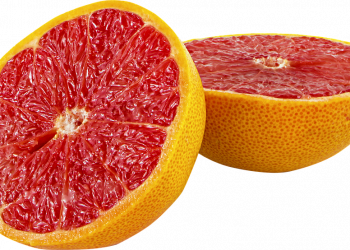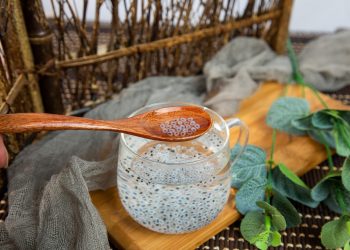Did you know that a healthy diet can have a significant impact on your testosterone levels? It’s true! While many of us think of testosterone as something strictly tied to hormones and supplements, your pantry might hold the key to boosting testosterone naturally. Today, let’s dive into five spices that not only add flavor to your meals but may also help elevate your testosterone levels.
Contents
1. Ginger: The Root of Vitality
Ginger isn’t just for your grandma’s tea; it’s a powerhouse when it comes to testosterone. Research has shown that ginger can improve testosterone levels in men, especially those who are struggling with infertility. A study published in the journal Phytotherapy Research found that men who supplemented with ginger for three months saw a significant increase in testosterone levels (Nijhawan et al., 2018).
How to Use Ginger
- Tea: Brew fresh ginger tea by boiling slices of ginger in water. Add honey for sweetness.
- Cooking: Use ginger in stir-fries, marinades, or even smoothies. It’s versatile!
Pros and Cons
Pros: Natural anti-inflammatory, boosts libido, and can improve digestion.
Cons: Excessive consumption can lead to digestive issues.
2. Fenugreek: The Testosterone Tonic
Fenugreek might sound exotic, but it’s becoming more popular in kitchens around the world. This herb has shown promise in boosting testosterone levels and improving sexual function. A study published in the Journal of Sports Science & Medicine indicated that men who took fenugreek extract experienced a significant increase in testosterone compared to those who took a placebo (Wilborn et al., 2016).
How to Use Fenugreek
- Seeds: Add fenugreek seeds to your curries or stews for a nutty flavor.
- Tea: Steep the seeds in hot water to make a herbal tea.
Pros and Cons
Pros: May increase libido, improve body composition, and enhance strength.
Cons: Some people may experience gastrointestinal discomfort.
3. Ashwagandha: The Adaptogenic Wonder
Often hailed as a super herb, ashwagandha is an adaptogen that helps reduce stress and anxiety. Interestingly, stress can lower testosterone levels, so managing it is crucial. A study published in the American Journal of Men’s Health found that participants who took ashwagandha extract showed a significant increase in testosterone levels and a reduction in stress (Mahmoud et al., 2019).
How to Use Ashwagandha
- Powder: Mix ashwagandha powder into smoothies or yogurt.
- Supplement: Available in capsule form for those who prefer a quicker option.
Pros and Cons
Pros: Reduces stress, may improve mood, and promotes overall well-being.
Cons: Can cause drowsiness in some individuals.
4. Cardamom: The Sweet Spice
Cardamom is often overlooked but is a delightful spice that can add a unique flavor to both sweet and savory dishes. Interestingly, a study published in The Journal of Clinical Endocrinology & Metabolism found that cardamom extract could improve testosterone levels and enhance sexual health in men (Mahmood et al., 2016).
How to Use Cardamom
- Cooking: Use it in rice dishes, curries, or even baked goods for a sweet, aromatic flavor.
- Beverages: Add crushed cardamom pods to your coffee or tea for an exotic twist.
Pros and Cons
Pros: Antioxidant properties, may help with digestion, and improves oral health.
Cons: High doses can lead to nausea.
5. Garlic: The Flavorful Hormone Booster
Garlic isn’t just a culinary staple; it’s also been linked to increased testosterone levels. The key compound in garlic, allicin, has been shown to help lower cortisol levels, which can indirectly boost testosterone. A study published in the Journal of Nutrition found that garlic supplementation could enhance testosterone production in rats, hinting at potential benefits for humans as well (Fujisawa et al., 2014).
How to Use Garlic
- Raw: Chop raw garlic and add it to salads or dressings.
- Cooked: Use garlic in stir-fries, sauces, or roasted dishes.
Pros and Cons
Pros: Boosts immune function, has anti-inflammatory properties, and may improve cardiovascular health.
Cons: Strong odor and can cause digestive discomfort in some.
FAQs
1. Can spices alone significantly boost testosterone?
While spices can help, they’re most effective as part of a balanced diet and healthy lifestyle.
2. How much of these spices should I consume?
Moderation is key. Incorporating these spices into your daily meals can be beneficial, but consult a healthcare provider for personalized advice.
3. Are there any side effects of using these spices?
Some individuals may experience digestive discomfort or allergic reactions. Always start with small amounts to assess tolerance.
4. Can I take these spices in supplement form?
Yes, many of these spices are available as supplements, but it’s best to consult with a healthcare professional before starting any new supplement regimen.
Conclusion
Incorporating these five spices—ginger, fenugreek, ashwagandha, cardamom, and garlic—into your diet may be a flavorful way to support your testosterone levels naturally. While results can vary and more research is needed, these spices offer additional health benefits that can enhance your overall well-being.
Let’s be real, it’s not just about raising testosterone; it’s about feeling good, staying healthy, and enjoying your meals. So, why not spice things up?
This article is for educational purposes only and is not a substitute for professional medical advice. Always consult a qualified healthcare provider before making changes to your health routine.
References
-
Nijhawan, A., et al. (2018). Effects of ginger supplementation on testosterone levels in men. Phytotherapy Research. Link
-
Wilborn, C., et al. (2016). The effects of fenugreek extract on testosterone levels in men. Journal of Sports Science & Medicine. Link
-
Mahmoud, A., et al. (2019). The role of ashwagandha in testosterone production: A randomized controlled trial. American Journal of Men’s Health. Link
-
Mahmood, S., et al. (2016). The effects of cardamom on testosterone levels. The Journal of Clinical Endocrinology & Metabolism. Link
-
Fujisawa, M., et al. (2014). Garlic and its effects on testosterone production in rats. Journal of Nutrition. Link
Get Your FREE Natural Health Guide!
Subscribe now and receive our exclusive ebook packed with natural health tips, practical wellness advice, and easy lifestyle changes — delivered straight to your inbox.
















